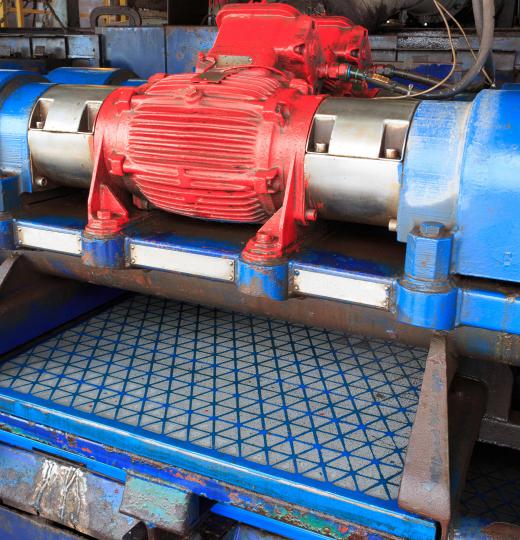Shale shakers are a type of industrial equipment used to remove rock particles from drilling fluid. This drilling fluid, or mud, plays a critical role in the drilling process. It washes away rock cuttings as they are cut by the drill, and also helps to cool the drill bit to reduce the risk of overheating. The shale shaker is designed to remove these rock cuttings and other solid materials from the drilling mud so that it can be safely reused over and over again. Shale shakers often serve as part of a larger mud removal system, which helps to keep the drilling mud free of not only solids, but also unwanted gases and other contaminants.
To understand how the shale shaker works, it's helpful to understand how it relates to other parts of the drilling process. The drilling fluid, which is made from water, oil, and chemicals, gathers in a storage pit or drum above the ground. Once drilling begins, this fluid travels down through drilling cables and enters the bore via holes in the drill bit mechanism. From here it washes back up the sides of the bore, carrying rock particles and other debris back to the surface. Once the mud reaches the surface, it heads back to the storage pit for reuse.

In drilling projects with a mud cleaning system in place, this mud flows directly out of the bore and into the shale shaker. The shale shakers consist of a vibrating tray lined with a wire mesh screen. Rocks and other solid materials remain on top of the screen while liquid passes through. The vibrating action of the screen helps to facilitate this process.

The choice of shale shaker screen is critical to successful removal of solid materials. The size of the holes on the screen should be matched to the size of the rock being extracted from each bore hole. It is also important to choose corrosion-resistant screen materials like galvanized steel to hold up against the extreme conditions on a drilling site. Many projects include multiple shale shakers so that the drilling mud must pass through several layers of cleaning and refinement.
A shale shaker provides many benefits to drilling companies. These systems help to clean drilling fluid so that it can be reused over and over again. Without these shakers, debris in the mud could damage the drill and halt operations. Reusing drilling fluid helps to conserve limited resources, and also cuts costs for drilling outfits. Finally, shale shakers make it easy to capture rocks and other solids that have been contaminated with oil so that they can be disposed of in an environmentally-friendly manner.
